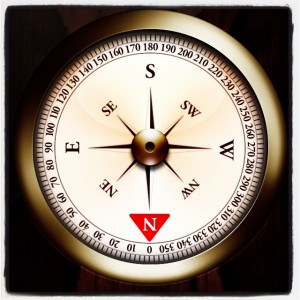 Not long ago I suggested a spiritual exercise which I have been implementing in my daily work day. It is an act of introspection. It is simple, yet profound. Here it is:
Not long ago I suggested a spiritual exercise which I have been implementing in my daily work day. It is an act of introspection. It is simple, yet profound. Here it is:
When the Resistance pops up, write it down.
The Resistance is a term given by Steven Pressfield in The War of Art to the internal struggle that inhibits us from doing the work we were meant to do. It consists of fear, procrastination, anger, disappointment, jealousy, self-doubt, anxiety, jealousy, excuses, and a pursuit of instant gratification.
I would like to revisit this concept of the Resistance and try to impart a theological context. I think we can better understand Christian theology and the Christian way of life through this exercise. I’m not trying to “Christianize” what Pressfield wrote about as if it needed some kind of redemption (it doesn’t). If anything I’m trying to “Pressfieldize” a theology we often overlook or consider irrelevant to our everyday lives.
In fact, what excites me most about the Resistance as a concept is that it puts in plain language and personal experience what is too often shunned to theological discourse or pastoral preaching.
We all experience the Resistance. We all feel it.
Where does it come from?
The Resistance is a Desire not a Sin
Morality is too often cornered into following or breaking laws. So too is the Christian life and the spiritual life seen as becoming “good little boys” and following rules.
We sin because there is a desire within us that directed us to the point of the sinful act. The sin is the free choice to give in to that desire. The desire is disoriented in our fallen world to use good things as a means to an end and not an end in itself.
There are a number of names for it. Desire is one of them. You might also call it:
- orientation / disorientation
- configuration
- ordered / disordered desires
- appetite
- inclination
- tendency
- inordinate or disordered passions
- concupiscence
It is this orientation that leads us to sin. It is the “fallen” state of humanity.
Sometimes it is called sin. But we too easily confuse “sin” with “sins” and thus misunderstand both meanings. If the Resistance is sin, then it should be clarified as the experience of Original Sin. Not the sin of Adam (an event), but the sin that we are born with that misdirects our desires toward lesser goods.
Analyzing the Resistance: What is Really at Work Here?
When I introduced the exercise, I suggested that “checking email” was one of the prime manifestations of the Resistance in my daily life. But why?
What’s wrong with checking email? I need to check and respond to email to do my work. If I didn’t check my email and respond to questions or requests, how could I do my work?
Of course, checking email constantly is a bad form of productivity. We are interrupted. We open the email window. That Inbox (2) notice in bold font is almost impossible to ignore.
So why is it the Resistance?
I’ve heard something happens biologically when we see there is a new email. When a new message pops up, a measurable change occurs within our brain to make us feel good. Think of dopamine. We get excited about the email as if it was a gift. And this gift is addicting.
Even as I proofread this post, an email showed up in my inbox and I had to consciously decide whether I should finish this post or interrupt my train of thought to see what that little email present has for me.
Checking email is not just a poor choice of time, it is a temptation that is fueled by a disordered desire. We have an inclination to choose email over real work. We get a “quick fix” and feel good when we respond to an email. Think about this. Email gives us a short-term pleasure that is almost impossible to ignore.
When this comes at the expense of real work–of work that is life-changing, work that requires sustained attention and perseverence–we are giving into a desire that pulls us away from what we truly desire: being fully alive.
When we get distracted by email or Facebook or Twitter, we trade the immediate for the eternal. We choose short-term pleasure over long-term glory.
It is this pleasure that opens us up to understand the real source of the Resistance.
A Tale of Two Desires
There are two kinds of desires (inclinations, orientations, configurations, etc.). One seeks instant gratification and the other seeks the good of others.
When we are attacked by the Resistance and give in, we find a lesser good, a short-term pleasure, an immediate gratification. The effect is only fleeting. The pleasure soon ends. But the desire only grows. We like the feeling. We look for it again. And again. And again for an eternity if we could.
We will never find true joy in the promises of the Resistance, but the effects are hard to ignore.
This is an orientation inward toward ourselves (not our True Selves, but to our ego).
So, what is the hidden source of the Resistance?
PRIDE
In a fallen world our hearts are configured by pride. The episode between the Serpent and Eve sums up this unfortunate circumstance as a choice of making ourselves great by our own efforts by eating of the Tree of Knowledge.
“Surely you will not die! No, God knows well that the moment you eat of it your eyes will be opened and you will be like gods who know what is good and what is bad.” (Genesis 2:4-5)
When we give in to the Resistance, we give in to pride. We choose to make ourselves like God. It is a form of self-love that, in fact, kills ourselves (our True Selves).
O, how hard it is to recognize pride when it appears! It seems like us, but it is not us. It feels good, but it doesn’t last long.
But, of course, there is a better way. . .
The Alternative Route
What, then, is the alternative to the Resistance? What is the opposite of pride? What other desire we have built into our hearts?
CHARITY
. . . which is most often manifested as humility.
By charity, I do not mean the act of donating money to good causes. That is being charitable, particularly when it is done for the sake of giving and not for the sake of some other end (tax benefit, high stature, respect, etc.).
By charity, I mean caritas, which means love.
Charity is a certain kind of love that selflessly seeks the good of the other. It is habitual. It is a selfless love. Thus, it is the opposite of pride, which is self-love.
When our hearts are configured by charity, these humble hearts are filled with the love of God. Only then has the Resistance lost its power.
Charity is the orientation towards the eternal God and therefore towards others.
Charity seeks eternity. We are shrunk by eternity. There is no quick fix that can fill our humble hearts.
For the writer charity means rejecting the Tweets and writing the book (140 characters vs. 140 pages). For the painter it means finishing the painting. For the entrepreneur it means launching the business.
All of these creations require patience and long, hard work for them to come to life.
Books, paintings, businesses, sculptures, crafts, websites, and videos allow us to be like Gods because they are inspired by God. We become co-creators making something from nothing. Creation is an act of love. For it is through the act of creation that we love the act for the sake of itself not as a means to an end, but as an end in itself.
They are attempts at eternity–creating something that will last beyond us. If our work is not working towards the eternity, then it has lost its meaning.
This needs much more exploration, of course. The whole story isn’t told.
And don’t think for a second hard work will change your heart. You can’t beat the Resistance alone.
If you honestly think you can beat the Resistance on your own, you’ve already been beaten. Pride has won.


